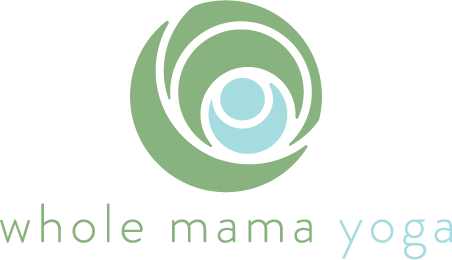The Main Anxiety of Motherhood
I worry about my daughter dying more often than I can even bear to write out. I know that you, too, fear for your children’s lives because it’s part of the package of motherhood—the scariest, darkest fears cross our minds. With motherhood, we’ve arrived at a place where there is so much to lose. Too much to lose. Too much of a loss to even comprehend. Even writing about this makes my stomach hurt—it makes this always-back-there-fear rise up into my throat, where no amount of gulping will send it away.
The fear begins when we’re pregnant. We pray and hope our way through that first trimester, where even the least interested-in-pregnancy among us know that there is a greater chance of miscarriage. Moments of fear come and go through pregnancy and for some of us, they crescendo in the chaos of birth—the unknown experience that can feel both natural and foreign. And then our babes are born and a new fear arises, a clear and persistent fear: we must keep them alive.
In fact, the whole first year of motherhood is silently punctuated by the phrase “please live.” So much of the anxiety of the first days, weeks, and months is about this fragile, soft, tiny being who you alone are now fully responsible for keeping safe and sound. Looking back I can see how that was always in the background of my first year with S, but I never spoke about it then. How could I even put that terror into words when she was so delicate, so freshly created? How can any new mother find those words?
I don’t think my thoughts about this are pathological, although I admit that the shadow of this fear crosses my mind regularly. I think these anxieties are in line with what it means to have children—especially in this day and age where we get so much information about just how much there is to fear. A cursory scroll through any mothers’ group on Facebook will quickly remind you that the flu, expired car seats, and even cookie dough are all out to get our children. People have expressed this persistent, low-level distress in many ways: our babies are our hearts walking around outside of our bodies—that’s a good way to say it. Francis Bacon said “He that hath wife and children, hath given hostages to fortune.” I quite like that one: when we bring our babies into this world and love them in this crazy deep way, we are putting our lives, their lives, our sanity into the hands of fate—and never have the odds felt so scary and precarious, simply because there are odds at all.
This is a hard topic, so here's a picture of my daughter eating ice cream right out of the carton. I feel better now.
One helpful thing to remember is that technology and modern society are on our side, even if the messaging we get via social media is not. By that, I mean, your child has (statistically speaking) never been safer. From a 2015 Washington Post article: “the overall child mortality rate in the United States has literally never been lower.” That’s pretty calming, if you ask me. (But it’s not enough, of course, because nothing could ever be enough except a 100% guarantee of a lifetime of happiness, safety, purity, and health.)
So what do we do about this fear—this fear that is the main anxiety of motherhood?
In yoga, one of the kleshas or impediments to a deeply spiritual life is abhinivesha. This means, basically, fear of death or attachment to life. It’s often seen as the pinnacle obstacle to happiness. Maybe it sheds light on how the ancient history of yoga is mostly meditative, ascetic men doing the practice that there is not a Sanskrit word that means “fear of loss of children.” Like all moms everywhere, my own life matters less than that of my child. Still, the fear we have for our children is abhinivesha, too.
To move through this fear and begin to see it clearly, the starting point is acknowledgement and acceptance.
Here is the truth: one day, your child is going to die. And one day, so are you.
Deep breath in.
Deep breath out.
One of my favorite takes on death acceptance comes from Stephen Colbert in a clip from his now-defunct show The Colbert Report. The clip is worth watching, but I’ll give you the spoiler. In it, he discusses research that suggests when people know the ending of a story, they enjoy the story more. From that, he surmises that we all know the ending of our own story. The punchline is great: you die. But, he says, doesn’t knowing this—accepting that that is indeed the definite end of your story—help you enjoy the story more?
If I remember that one day my daughter will die (and so will I) and if I allow my anxiety of this fear to become an emblem of the sweetness of this short and fleeting life, well then, can’t that fear be transformed into a poignant reminder to live fully? When I feel that fear in my throat, when that shadow crosses into my thoughts, can’t it become a prompt that connects me to fully living—fully savoring the gift of my child’s life in the face of understanding that the end will come, and I have no control of when that may be?
I think so. I hope so. That’s what I’m working on, anyway.

